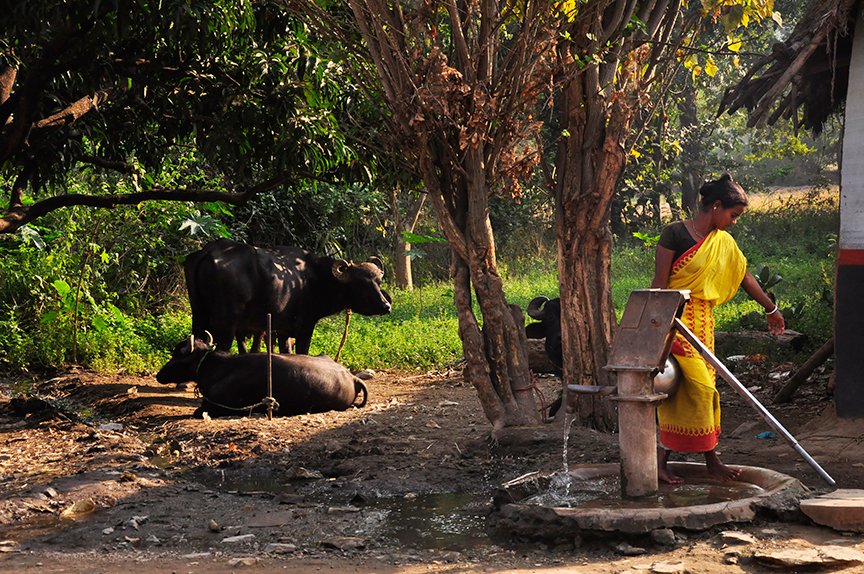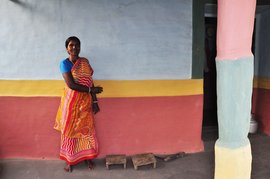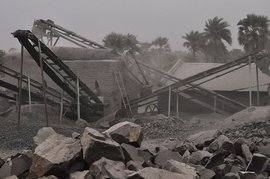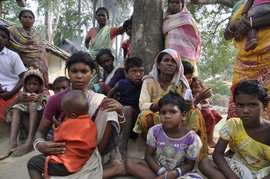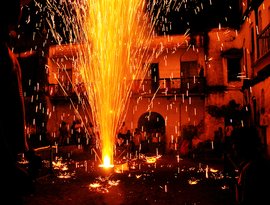Bhangaddih in Purulia, western West Bengal, is one of the more traditional Santal villages in the state. Mining has yet to reach the region, with the result that the villagers have access to nearby fields, forests and ponds, and grow almost all of their own food.
The day begins even as the top of a red sun struggles through the morning mist. The younger women throw open the doors of their huts and lift up the overturned baskets at their feet, releasing chickens and their broods from the shelters where they'd spent the night. It is late November, and those women who can be spared from household duties depart for the fields, where they will help the men with the harvesting. The others quickly lead the goats out of an inner room and tie them in front of the huts, leaving the kids free to play around their mothers, and release the sheep and buffaloes from the shed. If the family has a grandmother or grandfather, he or she takes the cattle to the meadows to graze.
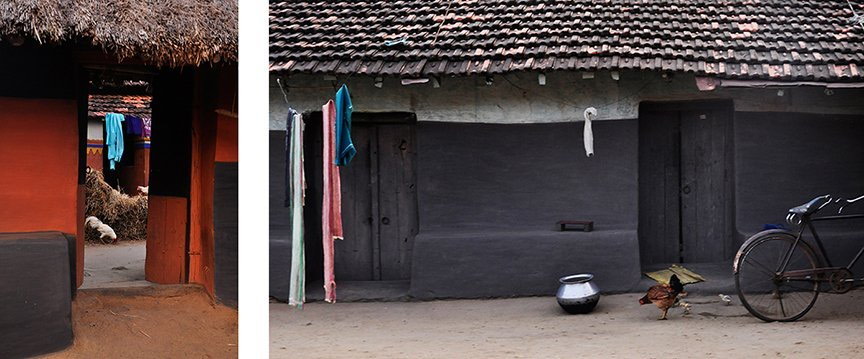
Some of the Santal houses painted and maintained by the women
Then the women set to sweeping – the cattle sheds, the huts, the inner and outer courtyards, even sections of the path that runs through the village, leaving everything spic and span.
The women also maintain the huts and paint them, but that is done in October, after the monsoon rains. Once the sweeping is over, they wash their hands, fetch their pots and collect water from the tubewell that is fortunately right in the middle of the village.
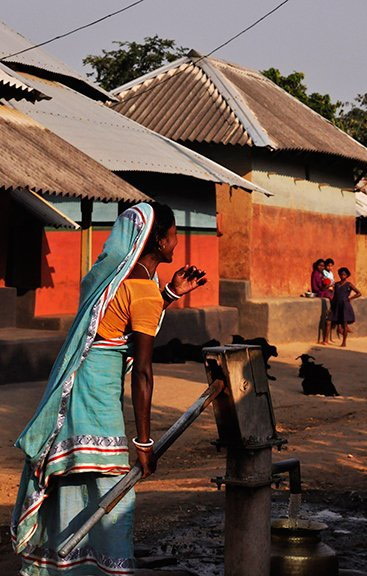

...but also to chat and to wash vegetables freshly gathered from the fields.
Previous cover's caption: The tubewell is where the women gather in the morning, not only to collect water...
Meanwhile the children have woken up and are keeping themselves busy. The drums, which hang in a designated shelter in the center of the village, are used for warning neighboring Santal villages of common dangers, and a passing elder soon tells the girls that they are not toys. But sifting dirt, rather than chaff, with a toy sifter, is allowed. The men and women have infinite patience with the children, showing no annoyance even when their play disrupts work.
Meanwhile the older women, in this case Sonamoni Murmu and her mother, have begun to cook the midday meal. When the rice is cooked, the starchy water is carefully drained and set aside to cool. The sheep will drink it.
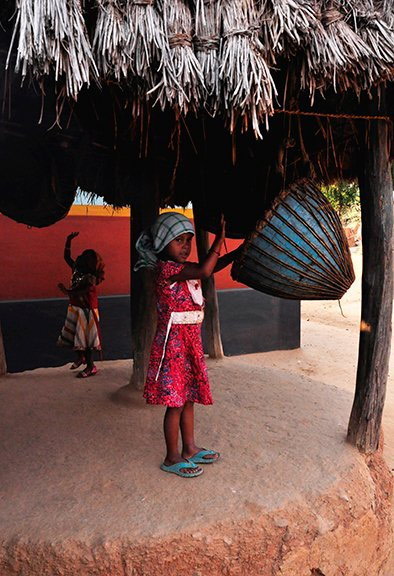

Left: A Santal girl tries her hand at the traditional drum. Right: And another plays with a sifter
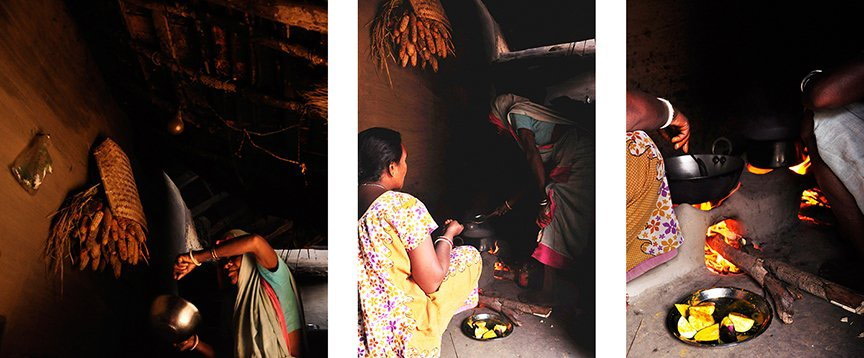
Sonamoni Murmu and her mother cook the midday meal
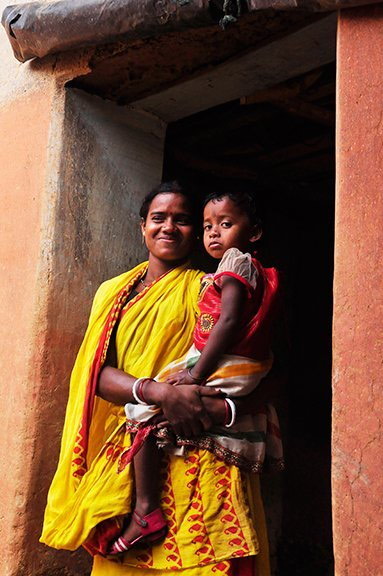
Sumitra Mardi from Keonjhar, Odisha: " She works all the time," her mother-in-law says, affectionately
Lunch of rice,
dal
and fried
brinjal
is late, eaten when the older children come home from school. Today the children also get fried eggs as a treat. After the meal, the women wash the smaller dishes at the tubewell. The chickens peck at every last grain washed off from the plates – in this village, nothing goes to waste. Then the women tend to the children and take a well-earned break.
Sumitra Mardi from Keonjhar, Odisha, is so essential to the running of her in-laws' household that she has not been able to visit her parents for a year. As a result, she has a short temper, her husband complains, but her mother-in-law understands her pain. "She works all the time," says the older woman. "This year, with so much illness around the house, we could not spare her. Still, I say she should go home soon." The family's eldest daughter, Sonamoni, is married but has come back to her parents' home with her youngest son, in order to convalesce after a prolonged struggle with encephalitis that she barely survived.
Sonamoni has some knowledge of medicinal plants, passed on to her from her grandmother. She uses the afternoon to collect these from a nearby forest, as well as several herbs that go into the making of bakhor , the fermenting agent for the Santal alcoholic drink mohua . Brewed out of flowers of the Mohua tree, the drink appears to have medicinal properties.
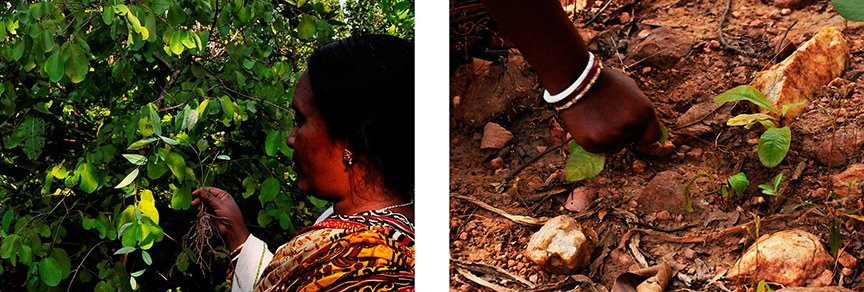
Sonamoni uses the afternoon to collect herbs from a nearby forest
Soon the fires have to be lit again, and the evening meal cooked. The cattle will troop into their homes, chewing stalks of grain gifted to them from the harvest, and the hens will sit with their broods under their wings, waiting for baskets to be placed over them. The children will fall asleep, and will have to be awakened, fed and put to bed. At long last, the women will get to sleep, under thin handmade cotton quilts that barely keep out the cold, sewn by some grandmother over long afternoons. To be the first to rise the next morning.
Women are crucial to the village economy. Traditionally a Santal woman's economic worth is acknowledged in the bride price paid to her parents when she gets married. One simple way to measure women's status is the ratio of women to men: in societies where women are less valued, as in mainstream India, the gender ratio is low. Adivasis have by far the highest gender ratio in India.

In the late afternoon, Sonamoni's son and his cousin sister go for a walk. They skip through the village…
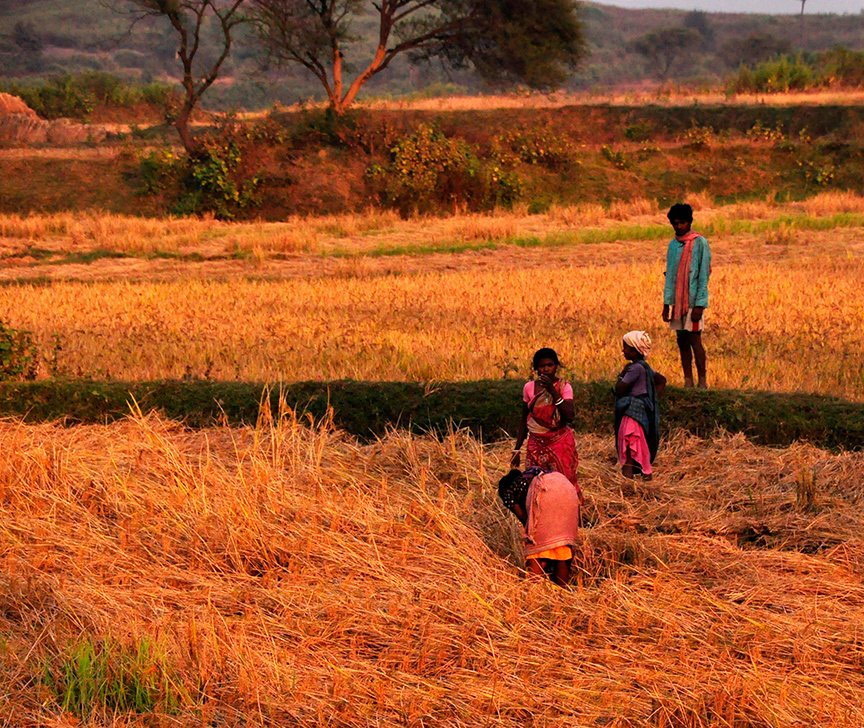
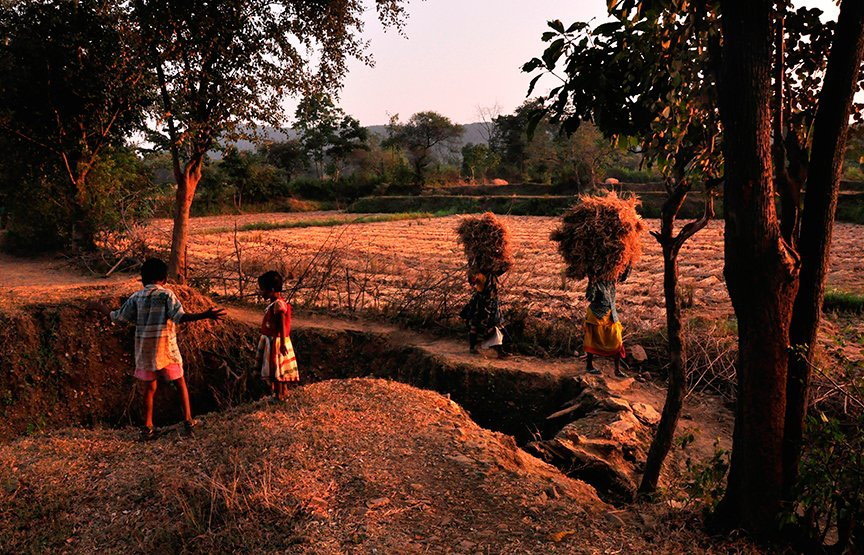
L...and pass a field where men and women have just cut the grain Right: Other women walk past, carrying the harvest in bundles…
The ratio is falling, however, along with the status of women in the household, because in most villages the economy is shifting from one where food is grown to one where food is bought with money earned. In a monetary economy, men have an enormous advantage over women because they can more easily work far from home. As a result, wives have to beg their husbands for cash with which to buy food and medicines. Not only do they have less control over the income, they have no control at all over market prices – although they remain responsible for feeding and caring for the children. As a reflection of this new powerlessness, Adivasi families that adapt to the monetary economy are abandoning bride price for dowry, a pernicious practice that turns girls into a burden for their parents and thereby worsens the gender ratio.
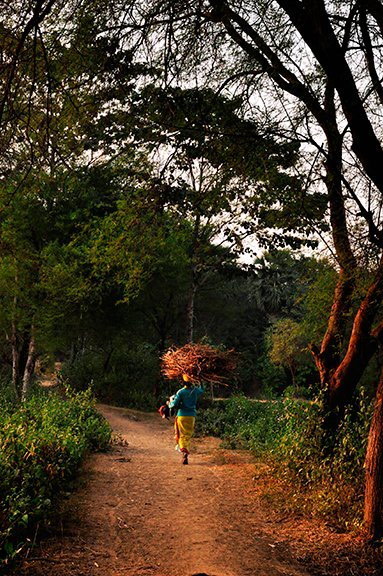
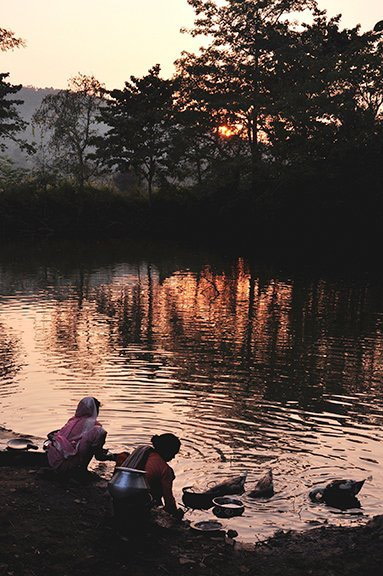
Left: ...as well as firewood. Right: As the sun sets, women wash the pots and pans in a local pond. The ducks dart after the grains washed off. What they can't get, the fish and crabs will
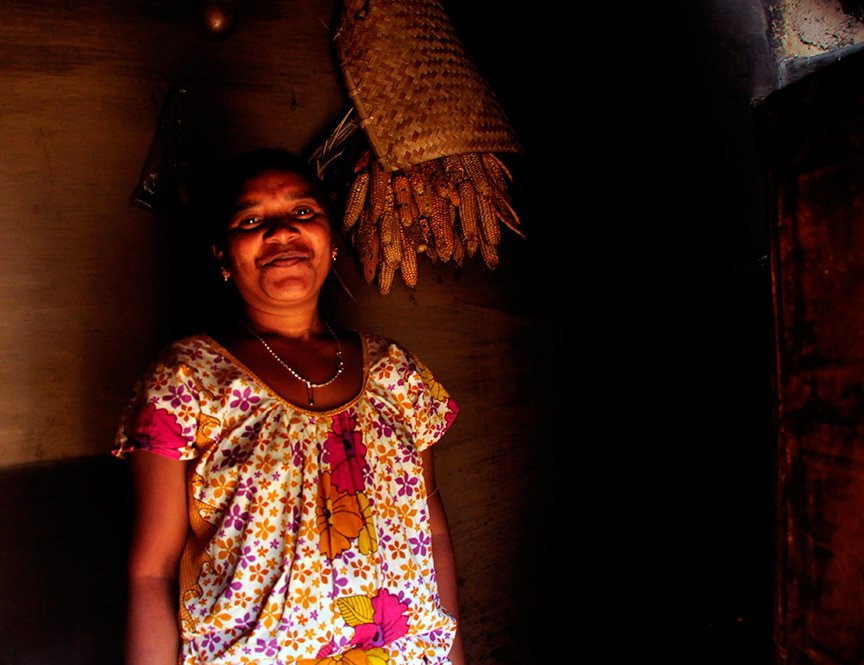
A beaming Sonamoni, a much-valued member of her family
For the time being, however, Bhangaddih's women remain safe, strong, and valued. It shows in the joy Sonamoni's siblings and parents take in her presence; far from being a burden, she is a valued member of the family and can stay as long as she likes.
